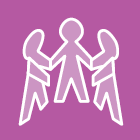How ECML projects contribute to intercultural education
The ECML project Conbat offers a bank of teaching materials, together with a training kit on how to use these materials and presents an innovative way of managing diversity in the classroom by combining plurilingual and pluricultural approaches with content-based instruction.
The Plurimobil project aims to promote best practice in mobility programmes, using tools developed by the Council of Europe to develop linguistic and intercultural competences. The project provides model learning scenarios for trainee teachers and pupils in primary, secondary and vocational education. It focuses mainly on the promotion and development of mobility in school contexts, so that learners on exchange programmes gain maximum benefit from their experiences in a new environment.
Professional mobility also provides opportunities to develop intercultural skills, and the ECML publication ICOPROMO focuses on how to improve intercultural competence for professional mobility.
The Gulliver project and publication - “Getting to know each other leads to better understanding” gives guidance on how to set up forums between schools on topics related to intercultural understanding.
Platform of resources and references for plurilingual and intercultural education of the Council of Europe
The work of the ECML in the area of plurilingual and intercultural education is part of a major initiative of the Council of Europe. The Platform of resources and references for plurilingual and intercultural education is ‘an instrument enabling member states to develop their programmes relating to languages of schooling and all language teaching’. It offers ‘an open and dynamic resource, with systems of definitions, points of reference, descriptions and descriptors, studies and good practices’. Reference texts and resources highlighted under ‘The learner and the languages present in school’ focus on plurilingual and intercultural education. Those under ‘Intercultural education’ include the ‘Autobiography of Intercultural Encounters’.
Competences for Democratic Culture
The Council of Europe has developed a Reference Framework of Competences for Democratic Culture, to be adapted for use in primary and secondary schools and higher education and vocational training institutions throughout Europe as well as national curricula and teaching programmes.
Plurilingual education and other thematic areas
 Languages of schooling
Languages of schooling
Two projects (Marille and Maledive) have addressed the issue of how plurilingual education can have an impact on the teaching of the language of schooling.
 Migrant education and employment
Migrant education and employment
Many issues in plurilingual and intercultural education are particularly relevant for migrant education. The project A collaborative community approach to migrant education provides a virtual open course for educators to enhance young migrants' education by developing links between schools, the home and local partners in education.
 Content and Language Integrated Learning (CLIL)
Content and Language Integrated Learning (CLIL)
In more and more countries, especially at secondary levels, students study a number of subjects in a second or foreign language using CLIL approaches. A number of ECML projects have produced guides for implementing CLIL in language education. They include the European Framework for CLIL Teacher Education and A pluriliteracies approach to teaching for learning, which links plurilingual approaches and the development of literacy.